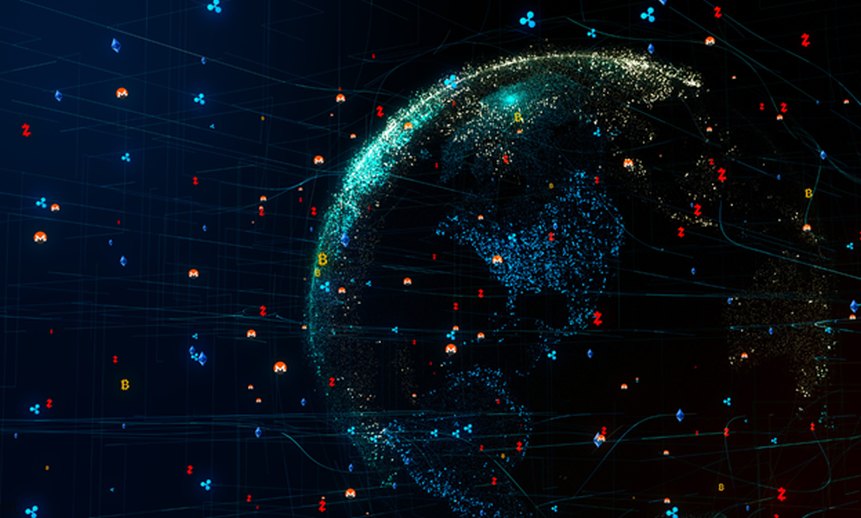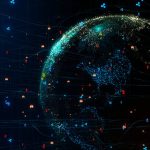OpenAI, Google, Microsoft & Others Dominate The AI Industry, But Decentralization Can Hand Power Back To The People

Most of the hard work done in getting AI to where it is today was done by multi-billion dollar multinational companies. Their enormous financial resources paved the way for generative AI technology that can converse like humans, write essays and marketing copy, and conjure up images from a simple spoken command. But although OpenAI, Google, Microsoft, Anthropic, AI21 Labs, Cohere, and others like to proclaim AI as a gift to humanity, there’s a danger in having too much power concentrated in the hands of so few.
The AI industry, once led by academics and a few startup enthusiasts, has become increasingly dominated by the biggest tech companies, bringing many perils. One of the major concerns is that this handful of companies has an outsized influence on how new AI technologies are developed and applied. It’s a worry because that enormous influence gives them the power to shape the AI industry in a way that dovetails with their business goals, which might not necessarily align with everyone else’s best interests.
That’s not the only risk. There’s also the danger of bias creeping into AI algorithms, the concerns over privacy infringements, and the use of AI for malicious purposes, such as misinformation and surveillance.
These issues are a concern because of the way AI has become more and more embedded into people’s daily lives, influencing what they see in their social media feeds, on the news, and the products they see advertised. It also has an impact on the job opportunities available to people, and the reach of AI will extend far beyond this, giving the corporations that lead the industry an opportunity to shape society and individual behaviors without any kind of oversight.
An open alternative to proprietary AI
The good news is that others are working to stop this dystopian scenario from playing out. They’re building a decentralized AI ecosystem that’s built around open-source AI models and infrastructure academic research, innovative startups, and blockchain technologies. By building a decentralized network as the foundation of AI, we can ensure a more balanced approach to its development, with public interest and ethical considerations given as much thought as the possible business benefits of any AI application.
As AI continues to shape our world, it’s vital that its development is aligned with society’s broader interests. Thanks to the rise of Web3 technologies like blockchain and digital tokens, we have the foundation of a decentralized AI ecosystem already in place. By spreading AI’s development across a more diverse range of users, we can propagate more ideas that aren’t focused solely on serving the interests of big corporations, helping to offset the risks of economic and innovation stagnation, privacy intrusion, and financial inequality.
The beauty of a decentralized AI ecosystem is that the data used to train AI is never stored on centralized servers. Because it’s built on blockchain, it can be distributed over a global network of servers, computers, and even smaller devices like smartphones. This reduces the risk of AI systems going offline or data being leaked, as it eliminates the single point of failure or attack while ensuring everyone can access the network’s resources.
Decentralized AI will tear down the gatekeepers and crush any kind of barrier to entry, actively promoting and accelerating innovation. AI researchers from across the world can come together to collaborate on a single, freely accessible AI infrastructure stack, so the most innovative minds can come together and get to work on their ideas.
Perhaps the most promising aspect of decentralized AI is that everyone can participate, not only to develop their ideas but to contribute resources and be rewarded for doing so. An example of this is SingularityNET, which is building a computational network anyone can join by sharing their unused computing capacity and making it available for AI models. Sahara Labs, meanwhile, is building a marketplace for data that can be used to train AI. Everyone who donates a dataset will be rewarded each time it’s used to train an AI model.
Both of these platforms incentivize participation with the prospect of cryptocurrency rewards, yet the cost of their services is far cheaper than any proprietary alternative.
A novel example of a decentralized AI network is Qubic, which leverages a quorum-based network of 676 “computors” which are tasked with executing smart contracts for AI applications. For any transaction to be processed, Qubic requires a consensus is reached between at least 451 of its computors. The network is powered by a Useful Proof-of-Work consensus algorithm, which paves the way for energy-efficiency AI training infrastructure.
Qubic wants to democratize access to AI through the use of artificial neural networks or ANNs as the basis of AI systems that will evolve, adapt, and improve over time. To ease access, Qubic also supports ‘gas-free’ or no-cost transactions and employs the most advanced, Turing-complete smart contracts written in the C++ language to make them more compatible with developers’ existing skill sets. Qubic uses a decentralized governance model, through which the community can propose and vote on ideas to upgrade and build out its network. This ensures it will remain forever decentralized.
The promise of Decentralized AI
Some might think that the likes of OpenAI and Google are already well on the way toward industry domination, but only a fool would discount decentralized AI in a world that has already seen almost all types of software become open-source.
The appeal of decentralized AI systems is that their communities are the real driving force, making all of the decisions on how AI is developed and used. It means that no single entity can manipulate the network and its pace of innovation specifically to suit its business goals at the expense of everyone else.
But there’s more work to be done. Decentralized AI education requires education and awareness to succeed. That means finding the funds needed to create the content required to teach people about decentralized AI networks. This is the great differentiator between private and decentralized AI – private networks have all of the money, but there is hope that governments and even private organizations can be persuaded to see the advantages of decentralized AI, and invest in it.
With the likes of Qubic, SingularityNET, and Sahara all pushing for AI to become more open, awareness around decentralized AI is growing, and so too is the promise it holds.




